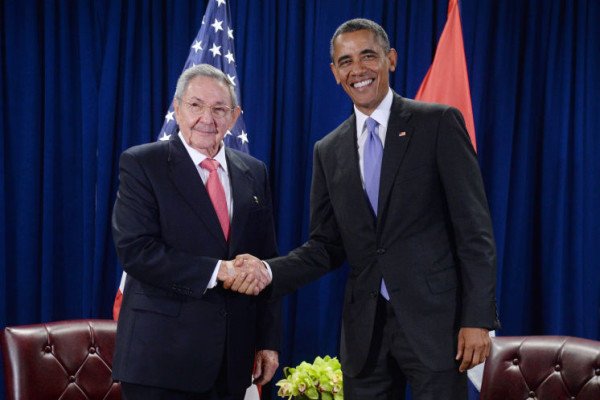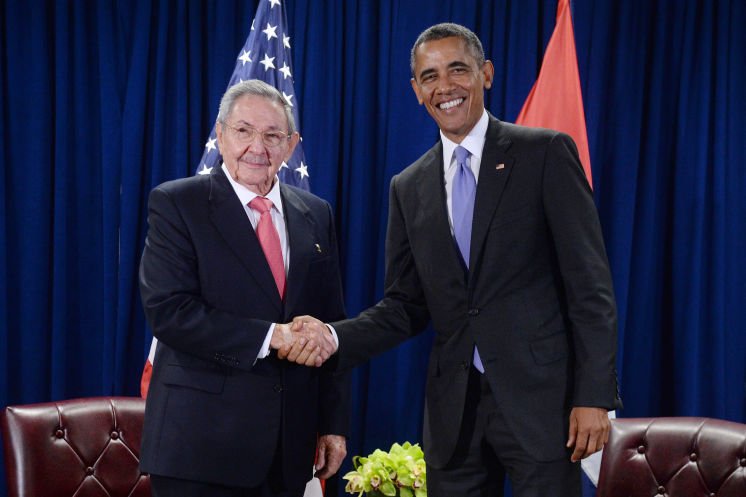Barack Obama and Raul Castro met on the sidelines of the UN General Assembly (UNGA) on September 29.
It was the second time Barack Obama and the Cuban president met in person this year after decades of estrangement between the two countries.
They shook hands before beginning private talks.
On September 28, Raul Castro called for an end to US economic sanctions on Cuba.
President Barack Obama had earlier expressed confidence that Congress would lift the embargo.
Raul Castro told the UN that normal relations with the United States would only be possible if the US abolished its trade embargo.
The embargo has been in place since 1960 and remains a contentious issue in relations between Cuba and the US.
In his speech to the UN, President Barack Obama said he was confident Congress would “inevitably lift an embargo that should not be in place anymore”.
On October 27 the UNGA is again scheduled to discuss a resolution condemning the embargo and calling for its abolition.
It is the 24th time the UNGA will vote on the issue, which generally is only opposed by the United States and Israel.
Speculation is already rife about how the US will vote this year after its own president dismissed the embargo as counterproductive and behind the times.
The resolutions are unenforceable, but a US abstention on a resolution critical of US behavior would be unprecedented.
The Republican-controlled US Congress has so far refused to lift the embargo.
Cuban-American Senator and presidential candidate Marco Rubio warned that an abstention would be “putting international popularity ahead of the national security and foreign policy interests of the United States”.
US officials said Raul Castro’s presence at the UN, the first time the Cuban leader spoke there, was a signal “that we’re in a new era”.
In his speech, Raul Castro said the normalization of relations would be “a long and complex process”.
